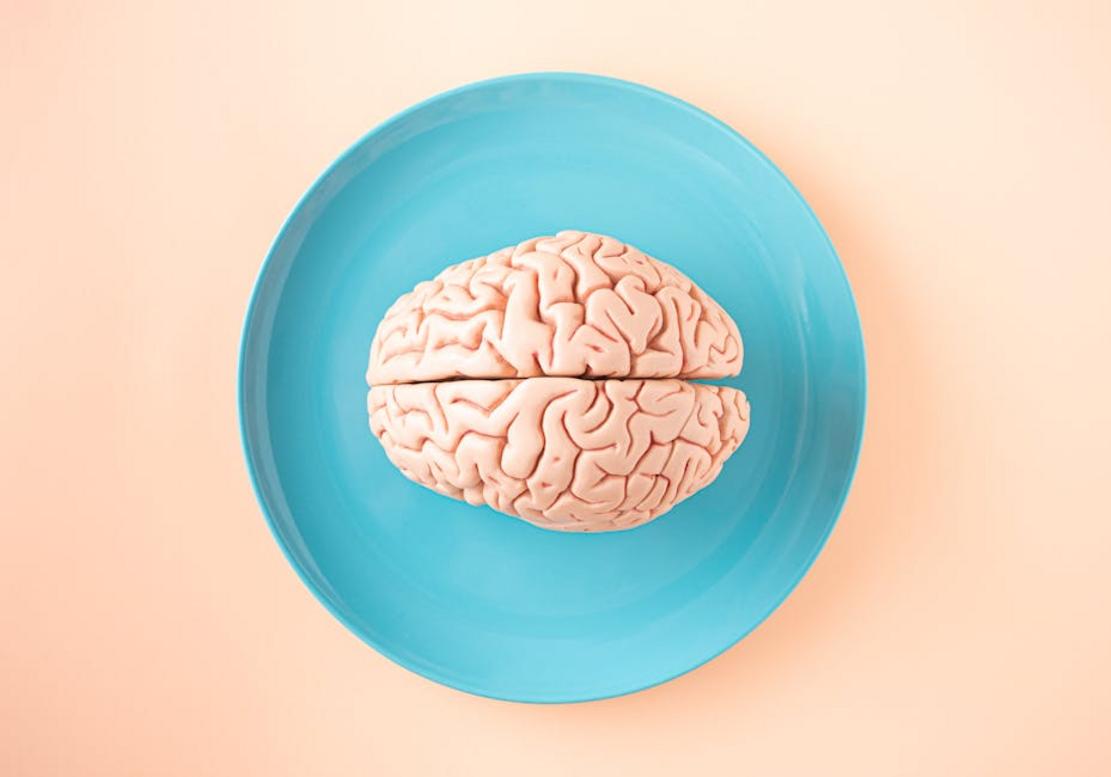I’ve seen too many people blame stress or age for their brain fog when the real problem is sitting on their plate.
You’re probably dealing with afternoon crashes, trouble focusing during meetings, or that frustrating moment when you walk into a room and forget why you’re there. Sound familiar?
Here’s what most people miss: your brain runs on what you eat. Not metaphorically. Literally.
Can diet help your brain tweeklynutrition? Yes. And the connection is stronger than most realize.
I’ve spent years building meal plans that target cognitive function. The science is clear. Certain foods protect your brain while others slowly damage it.
This article shows you exactly which foods boost your mental performance and which ones are sabotaging your focus. No complicated theories. Just practical guidance backed by nutritional research.
You’ll learn what to add to your diet today to sharpen your thinking. And what to cut out if you want to protect your memory long term.
Your brain fog isn’t permanent. It’s often just a symptom of poor fuel.
The Gut-Brain Axis: How a Healthy Gut Creates a Sharper Mind
Your gut talks to your brain.
I’m not being poetic here. There’s a real biochemical highway running between your gastrointestinal tract and your central nervous system. Scientists call it the gut-brain axis.
And it matters more than most people realize.
Here’s what’s happening. Your gut contains about 100 trillion bacteria (that’s more bacterial cells than human cells in your body). These microbes don’t just sit there digesting food. They produce neurotransmitters that directly affect your brain function.
Take serotonin. About 90% of your body’s serotonin is made in your gut, not your brain (Johns Hopkins Medicine). That’s the chemical that regulates your mood and helps you feel calm.
When your gut bacteria are balanced, they keep inflammation low and produce the right signals. Your thinking stays clear. Your mood stays stable.
But when that balance gets disrupted? Brain fog rolls in. Your mood swings. You can’t focus like you used to.
A 2019 study in General Psychiatry found that people who took probiotics showed reduced symptoms of depression and anxiety. The connection is real and measurable.
So can diet help your brain tweeklynutrition? Absolutely.
Start with probiotics. I’m talking about live bacteria that replenish your gut. Yogurt with active cultures, kefir, kimchi, sauerkraut. These foods introduce beneficial bacteria directly into your system.
Then add prebiotics. These are the fibers that feed your good bacteria. Garlic, onions, bananas, oats. They create an environment where healthy microbes thrive.
The flip side? A diet loaded with processed foods and sugar feeds the wrong bacteria. The bad ones multiply, inflammation increases, and that gut-brain connection starts sending the wrong signals.
You end up foggy and irritable without understanding why.
Your gut health isn’t separate from your mental clarity. They’re connected through chemistry you can influence with what you eat.
Essential Macronutrients for Optimal Brain Function
Your brain needs fuel.
But not just any fuel. The right kind matters more than most people realize.
I’m going to be straight with you. We know a lot about how macronutrients affect brain function. But we’re still figuring out the exact amounts each person needs. The research keeps evolving.
What we do know? Three macronutrients play major roles in keeping your brain sharp.
Healthy Fats: The Brain’s Building Blocks
Your brain is about 60% fat. That’s not a typo.
Omega-3 fatty acids, specifically DHA and EPA, help build and repair brain cells. Without them, your brain literally can’t maintain itself properly.
You’ll find these in salmon, mackerel, walnuts, chia seeds, and flaxseeds.
Here’s where it gets tricky though. Scientists still debate the optimal ratio of omega-3 to omega-6 fats. Some say 1:4, others say 1:1. I wish I could give you a definitive answer, but the truth is we’re still learning.
Smart Carbohydrates: The Brain’s Preferred Fuel
Your brain runs on glucose. Period.
But here’s what matters. Refined carbs spike your blood sugar fast, then crash it just as quickly. You know that 3pm brain fog? That’s usually the culprit.
Complex carbs work differently. Sweet potatoes, quinoa, and whole grains release glucose slowly. Your brain gets steady energy for hours instead of minutes.
Can diet help your brain tweeklynutrition? Absolutely. But the timing and combination of carbs with other foods still has some gray areas in the research.
Quality Proteins: The Neurotransmitter Factory
Proteins break down into amino acids. Those amino acids become neurotransmitters like dopamine and serotonin.
No protein? Your brain can’t make the chemicals it needs to function.
Lean chicken, eggs, lentils, and beans give you what you need. But I’ll be honest. The exact amount of protein for OPTIMAL brain function (not just adequate) is still being studied. General guidelines exist, but individual needs vary more than we’d like to admit.
Want more specific guidance on brain health? Check out cbd advice tweeklynutrition for additional support options.
The bottom line? Focus on getting all three macronutrients from quality sources. Your brain will thank you.
Micronutrients: The Spark Plugs of Cognitive Health

Your brain needs more than just calories to function.
Think of micronutrients as the maintenance crew that keeps everything running smoothly. Without them, your mental performance starts to slip even if you’re eating plenty of food.
Antioxidants – Your Brain’s Defense System
Here’s what happens inside your skull every day. Your brain cells produce waste products called free radicals. These molecules damage your neurons over time, which is why your memory and focus can decline as you age.
Antioxidants neutralize these free radicals before they cause problems.
The best sources? Blueberries pack in anthocyanins that cross the blood-brain barrier. Strawberries deliver vitamin C that protects brain tissue. Dark chocolate (the 70% cacao kind) contains flavonoids that improve blood flow to your brain.
Green tea gives you EGCG, a compound that studies show can protect against age-related mental decline.
B Vitamins – The Memory Enhancers
B vitamins do something most people don’t realize. They help your body produce neurotransmitters, the chemical messengers your brain cells use to communicate.
Vitamin B6 supports the creation of serotonin and dopamine. B9 (folate) helps build new brain cells and repair DNA. B12 maintains the protective coating around your nerves, which is why a deficiency can lead to memory problems and confusion.
You’ll find these in leafy greens like spinach and kale. Legumes (beans and lentils) are loaded with folate. Eggs give you B12 along with choline, another brain-supporting nutrient. If you eat fortified cereals, check the label because many contain 100% of your daily B vitamin needs.
Key Minerals for Mental Clarity
Magnesium regulates nerve signaling and helps you manage stress. When you’re low on it, you might notice brain fog or trouble concentrating. Pumpkin seeds are one of the best sources, along with almonds and spinach.
Zinc plays a role in memory formation and learning. Your hippocampus (the memory center of your brain) stores more zinc than almost any other organ. Oysters top the list for zinc content, but you can also get it from beef and chickpeas.
Iron carries oxygen to your brain cells. Without enough, you’ll feel tired and struggle to think clearly. Lean red meat provides heme iron, which your body absorbs easily. Plant sources like lentils and fortified cereals work too, especially when you pair them with vitamin C.
Want to see how these micronutrients fit into a complete eating strategy? Check out the sports guide tweeklynutrition for practical meal planning tips.
The question isn’t whether can diet help your brain tweeklynutrition answers with research-backed strategies. It’s whether you’re getting enough of these specific nutrients every day.
Building Your Brain-Healthy Plate: A Practical Guide
You walk into your kitchen and stare at the fridge.
What should you eat if you actually want to help your brain?
Most people know they should eat healthier. But when it comes to brain health specifically, the advice gets fuzzy fast. One expert says go keto. Another swears by veganism. Someone else is pushing supplements you’ve never heard of.
Here’s what I know works.
The MIND diet isn’t sexy. It doesn’t promise you’ll lose 20 pounds in two weeks or suddenly remember where you left your keys in 1987. But the research backs it up (and I mean actual peer-reviewed studies, not Instagram testimonials).
MIND stands for Mediterranean-DASH Intervention for Neurodegenerative Delay. It combines two eating patterns that have been studied for decades. The focus? Whole foods. Lots of plants. Healthy fats. Nothing extreme.
What a Brain-Healthy Day Actually Looks Like
Let me show you what this looks like in real life.
Breakfast: Oatmeal with blueberries and walnuts. Not the instant packet stuff loaded with sugar. Real oats. A handful of berries. Some nuts on top.
Lunch: Salmon salad with leafy greens. Spinach or kale work great. Add some olive oil and lemon.
Dinner: Lentil soup with whole-grain bread on the side.
Notice what’s NOT there? Processed foods. Added sugars. The kind of stuff that comes in a box with ingredients you can’t pronounce.
Some people say this approach is too restrictive. They argue you need MORE protein or FEWER carbs or whatever the trend of the month is.
But here’s the comparison that matters.
Option A: Follow a restrictive diet that cuts out entire food groups. You might see results short-term, but most people can’t stick with it. You end up back where you started (or worse).
Option B: Make simple swaps that you can actually maintain. Swap vegetable oil for olive oil. Trade white bread for whole-grain. Grab almonds instead of chips when you need a snack.
Which one sounds more realistic for the long haul?
Can diet help your brain tweeklynutrition? Yes. But only if you actually stick with it.
And here’s something most people ignore completely.
Water.
Your brain is roughly 75% water. When you’re even slightly dehydrated, your cognitive function drops. You get foggy. Tired. Irritable (though you might just think that’s Monday).
I’m not talking about chugging a gallon a day. Just drink water consistently throughout the day instead of waiting until you’re thirsty.
The truth is, building a brain-healthy plate isn’t complicated. You don’t need exotic superfoods or expensive meal plans.
You just need to make better choices more often than not.
Your Journey to a Healthier Brain Starts Now
You came here wondering if what you eat could actually help your brain work better.
The answer is yes.
I’ve put together a complete set of nutritional strategies that target brain health directly. You don’t need complicated protocols or expensive supplements to start seeing results.
Brain fog makes everything harder. Memory lapses are frustrating. Mental fatigue kills your productivity.
But you can fight back with the right food choices.
Your brain needs fuel just like any other organ. Feed it healthy fats and it builds stronger cell membranes. Give it antioxidants and it protects itself from damage. Load up on vitamins and whole foods and you’re providing the raw materials for better focus and sharper thinking.
Can diet help your brain tweeklynutrition? Absolutely.
The science backs this up. Your diet shapes how well your brain performs every single day.
Here’s what I want you to do: Pick one brain-healthy food we talked about and add it to your next meal. Just one.
Maybe it’s wild-caught salmon for those omega-3s. Or a handful of blueberries for antioxidants. Even a serving of leafy greens counts.
Start small. Your mind will thank you for it. Homepage.

